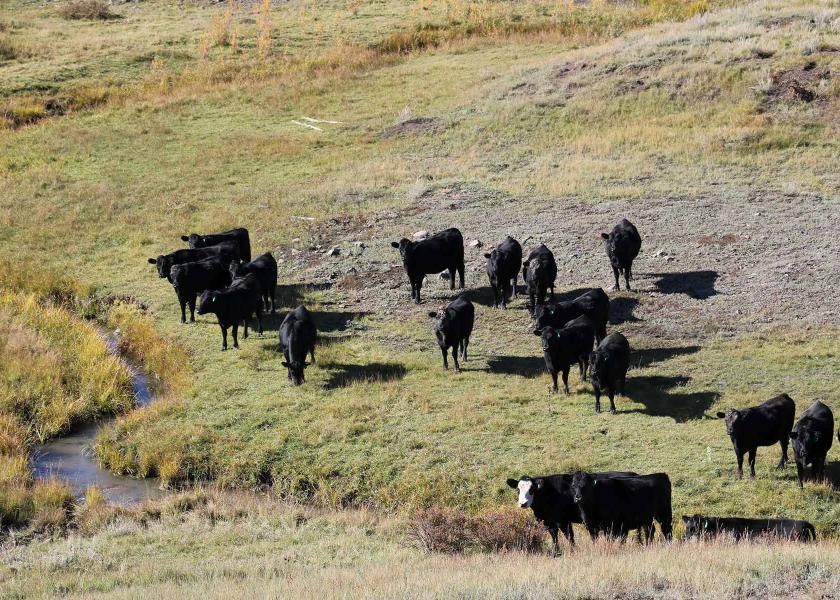PAUSE Act A Radical Threat To Ranching

Regardless of where you draw your personal ideological boundaries, most of us would agree Americans have split into two separate realities. Some have dubbed this ferocious politicization the “culture wars,” a phenomenon that has invaded many aspects of our lives.
In a January opinion in Deseret News, Jennifer Graham argued that America’s culture war will continue to rage in 2021.
“It rages in Twitter bios and at kitchen tables; in the acrimonious debate over masks, in the tearing down of statues, in the renaming of mascots and schools,” Graham wrote.
One location where culture wars currently rage white-hot is Eastern California, found on your map labeled Colorado. First-term Governor Jared Polis angered the state’s cowboys last summer when he posted a glowing review of Burger King’s plant-based Impossible Whopper to Facebook. The insult was compounded when Polis ordered an Impossible Burger lunch for all ag department staff at a new research facility. One Colorado newspaper editor said, “Impossible Burgers in cattle country is like a cow pie at a tea party.”
Not content to let the embers die on the Impossible firestorm, earlier this year Polis declared March 20 (the first day of spring) as “MeatOut Day.” In his proclamation, the governor said, “removing animal products from our diets reduces the risk of various ailments…and a plant-based diet helps protect the environment by reducing our carbon footprint, preserving forests, grasslands, and wildlife habitats.”
Hmmm…a lot of road apples to clean up in that proclamation, and since we’re headed in a different direction, we’ll just note we could spend the remainder of this column citing evidence to the contrary. The point here is that with a blatant anti-agriculture bias, Polis has hung out a “welcome” sign to some of the most radical environmental and animal welfare groups on the planet.
None more radical than proponents of Initiative #16, nicknamed Protect Animals from Unnecessary Suffering and Exploitation (PAUSE). The PAUSE Act contains some provisions so outrageous that AgriTalk host Chip Flory thought I was playing an April Fool’s joke on his listeners when I described it on-air.
For instance, the PAUSE Act would redefine animal cruelty and expand the definition of a sex act with an animal. In short, the PAUSE Act would outlaw many common practices such as artificial insemination, embryo transfer, pregnancy checking or bull soundness exams. Seriously, I’m not making this up!
As if the sex acts provisions weren’t radical enough, proposed Initiative #16 also mandates that food animals be allowed to live at least one-quarter of their natural life before going to harvest. PAUSE defines the natural life span of cattle as 20 years, meaning they wouldn’t be eligible for slaughter until they are five years old. Other natural life spans are 15 years for a pig, eight for a chicken and six for a rabbit.
To make it on the Colorado ballot in 2022, Initiative #16 requires 124,632 signatures from registered voters on a petition. Before signing the petition, we think everyone should be required to eat a five-year-old steak first, but we can’t imagine anyone who knows the difference between a good steak and a buffalo hide would be inclined to sign such a petition anyway.
As you might expect, Colorado ranchers are angered by the prospects of Initiative #16 making it onto the 2022 ballot. They’ve already called on Governor Polis to speak out against the measure, and to his credit a spokesman for the governor said Polis “agrees with farmers and ranchers that the PAUSE ballot initiative would hurt Colorado and destroy jobs, and he opposes it.”
Opponents of the PAUSE Act have launched “Coloradoans For Animal Care,” formed by the state's agriculture organizations to “protect our shared heritage and history, our dynamic agricultural economy and our way of life.”
“Livestock production in Colorado contributes more than $5 billion to the state's economy and supports more than 150,000 jobs,” the coalition says. “We've been raising livestock in Colorado since before statehood and agriculture is a crucial part of our shared heritage.”
Terry Fankhauser, executive vice president of the Colorado Cattlemen’s Association, said, "Initiative 16 would put an end to livestock agriculture in Colorado. It would put an end to our shared Western heritage."
Related stories:







